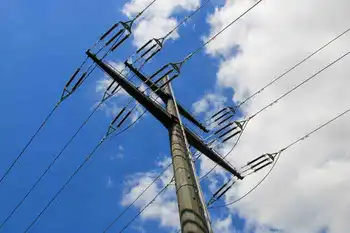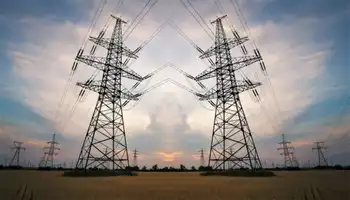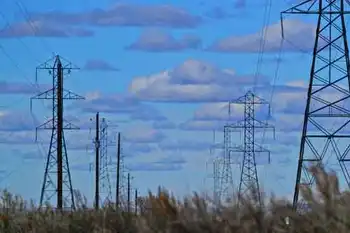Electricity Prices in France Turn Negative

CSA Z463 Electrical Maintenance -
Our customized live online or in‑person group training can be delivered to your staff at your location.

- Live Online
- 6 hours Instructor-led
- Group Training Available
Negative Electricity Prices in France signal oversupply from wind and solar, stressing the wholesale market and grid. Better storage, demand response, and interconnections help balance renewables and stabilize prices today.
Key Points
They occur when renewable output exceeds demand, pushing power prices below zero as excess energy strains the grid.
✅ Driven by wind and solar surges with low demand
✅ Challenges thermal plants; erodes margins at negative prices
✅ Needs storage, demand response, and cross-border interties
France has recently experienced an unusual and unprecedented situation in its electricity market: negative electricity prices. This development, driven by a significant influx of renewable energy sources, highlights the evolving dynamics of energy markets as countries increasingly rely on clean energy technologies. The phenomenon of negative pricing reflects both the opportunities and renewable curtailment challenges associated with the integration of renewable energy into national grids.
Negative electricity prices occur when the supply of electricity exceeds demand to such an extent that producers are willing to pay consumers to take the excess energy off their hands. This situation typically arises during periods of high renewable energy generation coupled with low energy demand. In France, this has been driven primarily by a surge in wind and solar power production, which has overwhelmed the grid and created an oversupply of electricity.
The recent surge in renewable energy generation can be attributed to a combination of favorable weather conditions and increased capacity from new renewable energy installations. France has been investing heavily in wind and solar energy as part of its commitment to reducing greenhouse gas emissions and transitioning towards a more sustainable energy system, in line with renewables surpassing fossil fuels in Europe in recent years. While these investments are essential for achieving long-term climate goals, they have also led to challenges in managing energy supply and demand in the short term.
One of the key factors contributing to the negative prices is the variability of renewable energy sources. Wind and solar power are intermittent by nature, meaning their output can fluctuate significantly depending on weather conditions, with solar reshaping price patterns in Northern Europe as deployment grows. During times of high wind or intense sunshine, the electricity generated can far exceed the immediate demand, leading to an oversupply. When the grid is unable to store or export this excess energy, prices can drop below zero as producers seek to offload the surplus.
The impact of negative prices on the energy market is multifaceted. For consumers, negative prices can lead to lower energy costs as wholesale electricity prices fall during oversupply, and even potential credits or payments from energy providers. This can be a welcome relief for households and businesses facing high energy bills. However, negative prices can also create financial challenges for energy producers, particularly those relying on conventional power generation methods. Fossil fuel and nuclear power plants, which have higher operating costs, may struggle to compete when prices are negative, potentially affecting their profitability and operational stability.
The phenomenon also underscores the need for enhanced energy storage and grid management solutions. Excess energy generated from renewable sources needs to be stored or redirected to maintain grid stability and avoid negative pricing situations. Advances in battery storage technology, such as France's largest battery storage platform, and improvements in grid infrastructure are essential to addressing these challenges and optimizing the integration of renewable energy into the grid. By developing more efficient storage solutions and expanding grid capacity, France can better manage fluctuations in renewable energy production and reduce the likelihood of negative prices.
France's experience with negative electricity prices is part of a broader trend observed in other countries with high levels of renewable energy penetration. Similar situations have occurred in Germany, where solar plus storage is now cheaper than conventional power, the United States, and other regions where renewable energy capacity is rapidly expanding. These instances highlight the growing pains associated with transitioning to a cleaner energy system and the need for innovative solutions to balance supply and demand.
The French government and energy regulators are closely monitoring the situation and exploring measures to mitigate the impact of negative prices. Policy adjustments, market reforms, and investments in energy infrastructure are all potential strategies to address the challenges posed by high renewable energy generation. Additionally, encouraging the development of flexible demand response programs and enhancing grid interconnections with neighboring countries can help manage excess energy and stabilize prices.
In the long term, the rise of renewable energy and the occurrence of negative prices represent a positive development for the energy transition. They indicate progress towards cleaner energy sources and a more sustainable energy system. However, managing the associated challenges is crucial for ensuring that the transition is smooth and economically viable for all stakeholders involved.
In conclusion, the recent instance of negative electricity prices in France highlights the complexities of integrating renewable energy into the national grid. While the phenomenon reflects the success of France’s efforts to expand its renewable energy capacity, it also underscores the need for advanced grid management and storage solutions. As the country continues to navigate the transition to a more sustainable energy system, addressing these challenges will be essential for maintaining a stable and efficient energy market. The experience serves as a valuable lesson for other nations undergoing similar transitions and reinforces the importance of innovation and adaptability in the evolving energy landscape.















